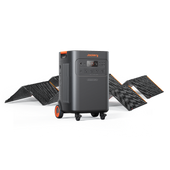

















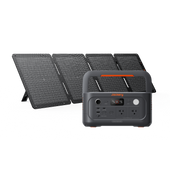





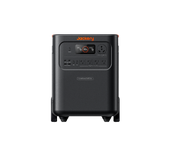


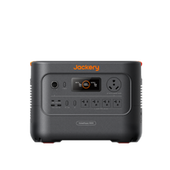







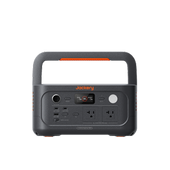












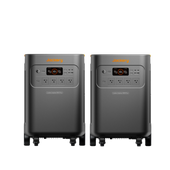


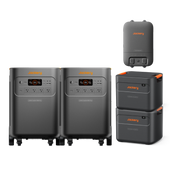






















![[Add - on] Jackery Manual Transfer Switch for Explorer 5000 Plus - Jackery](http://www.jackery.com/cdn/shop/files/add-on-jackery-manual-transfer-switch-for-explorer-5000-plus-9017324.png?v=1754016782&width=170)
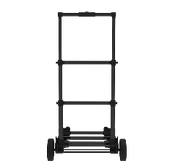
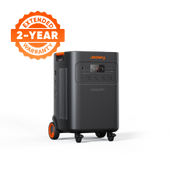
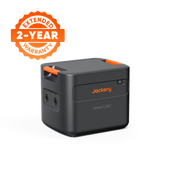
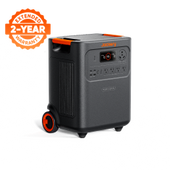







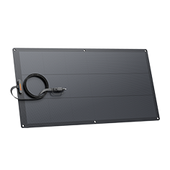
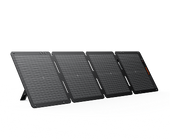



















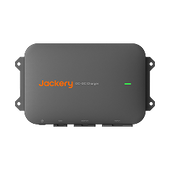








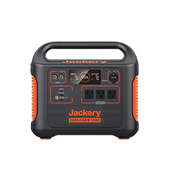










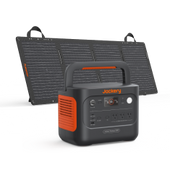


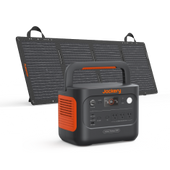












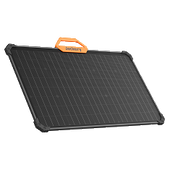






































































































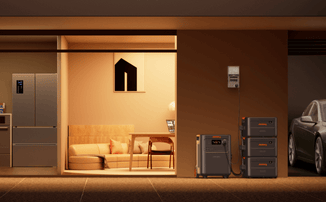



















































































![[Add - on] Jackery Manual Transfer Switch for Explorer 5000 Plus - Jackery](http://www.jackery.com/cdn/shop/files/add-on-jackery-manual-transfer-switch-for-explorer-5000-plus-9017324.png?v=1754016782&width=170)






































































New Year Sale
UP TO 53% OFF
Set Up Your Power for the Year Ahead
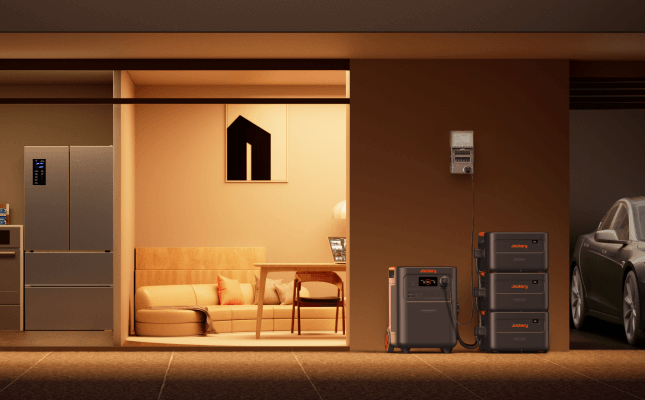









The first time Joseph lost power during a workday, he shrugged it off. After all, he lived in Florida — flickers were part of the deal. But when it happened again during a client call, and again while compiling code, and then again at 2 a.m. when his infant twins startled awake to a house gone dark, it stopped being a nuisance. It became a problem.
“In Florida, we talk about power outages like weather,” he said. “But when you’re working from home with kids, those outages aren’t just blips. They ripple.”
Joseph isn’t dramatic by nature. He’s a software engineer: logical, even-keeled, methodical. He speaks in system diagrams, not sentiment. But something shifted when the stakes stopped being personal and became parental.
He began researching options the way engineers do: obsessively. Whole-home generators. Uninterruptible power supply (UPS) units. Solar kits. He compared wattages, read manuals, and ran simulations.
“I realized I didn’t need something that lit up the entire house,” he said. “I needed something that kept the critical things running, like fridge, lights, office, baby monitors.”
That’s when he found Jackery.
With the Explorer 5000 Plus and a smart transfer switch installed by professionals, Joseph connected the circuits that mattered most: his garage-turned-office, the kitchen, the children’s rooms, and his wife’s workspace. It wasn’t flashy. It was deliberate.
“I didn’t need heroics,” he said. “I needed stability.”
The strongest endorsement didn’t come during a storm, it came during a moment most people wouldn’t even notice.
“The lights flickered,” Joseph recalled, “but my computer didn’t. I was right in the middle of coding, and everything stayed on. Nothing blinked. Nothing reset.” It was just a split second. But for Joseph, it marked a shift, from hopeful anticipation to quiet trust.
That same steadiness made an even bigger difference at night. Before installing the Jackery, a minor power interruption would trigger all the smart lights to reset to their default state: full brightness. That meant sudden wake-ups, disrupted sleep, and scrambling to settle the kids back down.
“Now, when the power flickers, nothing changes,” he said. “The lights stay off. The fans keep running. Our twins sleep through it, and so do we.”
Jackery’s role in the Schentrup household didn’t end at the garage door. When Joseph’s wife, a craftsperson who regularly attends outdoor markets, prepared for a long day under the Florida sun, he suggested bringing the unit along.
“She had no idea what Jackery was at first,” Joseph recalled. “I told her I might need to do an interview if I signed up for this thing, and she said, ‘What are you talking about?’”
But once the system was installed and running, she saw its value firsthand.
At their first craft fair with the Jackery in tow, it quietly powered everything: fans to cut the heat, phone chargers to stay connected, and the point-of-sale system that kept sales moving. “We never once worried about running out,” Joseph said. “That kind of certainty, in that kind of heat makes all the difference.”
For his wife, it wasn’t just convenient. It was empowering. And for Joseph, it was a quiet moment of satisfaction, seeing something he brought home become something the whole family relies on.
“It’s one of those things you buy for one reason,” he said, “and then it solves five more problems you didn’t even realize you had.”
As a technical user, Joseph doesn’t sugarcoat. He’s upfront about early frustrations, like discovering that UPS mode doesn’t work while the unit is charging, something he only found buried in the manual. Or that the smart transfer switch wires come out the side, making a clean install more difficult.
But overall? “It just works,” he said. “No crashes. No updates breaking things. No dependency on Wi-Fi. That’s rare these days.”
Most of all, he values the unit’s open design. “Everything’s standard. No weird proprietary parts. If something happens to the brand, I still have a usable product.”
For an engineer who’s watched many tech platforms over-promise and disappear, that openness is priceless.
Before becoming a father, Joseph approached power outages with a kind of calculated indifference. If the lights went out, he’d grab his laptop, find a nearby café with Wi-Fi, and carry on.
But twins changed everything.
“You don’t just leave the house with two babies,” he said. “You don’t casually pull out a generator at 3 a.m. in a thunderstorm while your kids are screaming in the dark.”
Parenthood rewired his priorities. What once felt like an inconvenience became a liability. What once could be solved by moving became a challenge in staying put.
“It’s not about survival anymore. It’s about stability,” Joseph said. “Diapers. Bottles. White noise machines. Fans. A working microwave. These aren’t luxuries when you have kids — they’re structure.”
For the Schentrups, preparedness is no longer a response to rare emergencies. It’s a buffer against the small but disruptive moments that ripple through a household built on routine. In those moments, the Jackery doesn’t just provide power, it protects the rhythm that holds a young family together.
“Peace of mind,” Joseph added, “means not having to wake everyone up just to stay safe.” Asked to distill it all into one line, Joseph doesn’t hesitate.
“Jackery provides strong, universal solutions to your power needs,” he says. “They don’t trap you in a subscription or an ecosystem. They just give you tools that work — and keep working.”
In a state where the next storm is always one season away, that quiet kind of trust might be the most powerful thing of all.
More